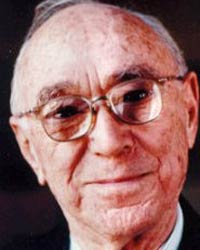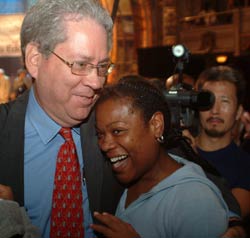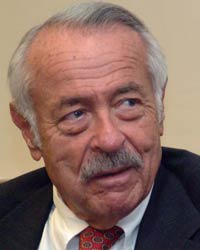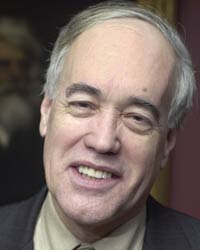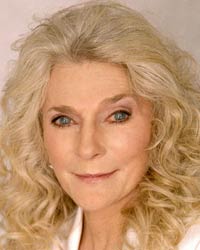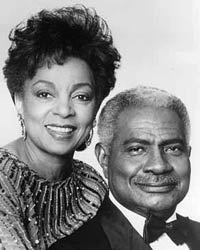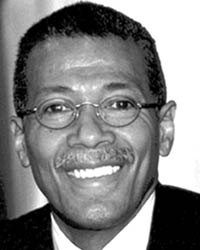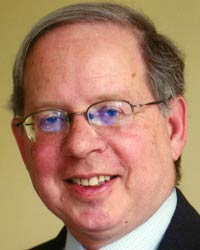A Line Up of Champions
TC Medal for Distinguished Service
Jerome Bruner
His book, The Process of Education, helped launch the educational reform movement during the 1960s and continues to profoundly influence understanding of perception, learning, memory, and other aspects of cognition in very young children.
He championed the notion that babies are not passive learners, but instead active participants in learning, anticipating a generation of developmental specialists. Yet Jerome Bruner is probably best known as a principal architect of Head Start, the pre-kindergarten program that has helped to level the educational playing field for millions of children whose poverty robs them of critically important intellectual and cultural stimuli during their earliest years. Bruner's ideas inform the growing body of research that stresses the importance of preparing children for education before they enter the school system.
Judy Collins
She's an actress, a writer and an activist. She is one of the most memorable vocalists -- and also among the most respected spokespersons -- of her generation. Judy Collins is perhaps best known for her rendition of Joni Mitchell's "Both Sides Now," but her version of "Amazing Grace" has sold a million copies, and her interpretation of Stephen Sondheim's "Send in the Clowns" won her the 1975 Grammy Song of the Year.
As a young teenager, Collins appeared in "The Guiding Light" soap opera and later in three Spanish films. She earned an Oscar nomination in 1975 for co-directing Antonia: A Portrait of a Woman.
Collins spoke out for civil rights in the 1960s and against the Vietnam War in the 1970s. She performed at President Clinton's inauguration in 1992 and worked for UNICEF as a Special Representative to the Arts. She now serves on the Advisory Board of Columbia University's School of the Arts.
Ruby Dee and Ossie Davis
In careers that span nearly half a century, this husband-and-wife team has gained recognition both as actors of stage and screen, and as activists supporting the civil rights movement.
Ruby Dee was the first black woman to play lead roles at the American Shakespeare Festival and was nominated seven times for Emmy Awards, winning one for her performance in the 1990 Hallmark Hall of Fame presentation Decoration Day.
Ossie Davis, who died this past winter, was an actor, writer, director and producer in work that often celebrated lessons of black history. During the civil rights era, he raised money for the Freedom Riders and eulogized both Martin Luther King, Jr. and Malcolm X at their funerals. He wrote three children's books, one of which received the Jane Addams Children's Book Award and was honored by the American Library Association.
Together, the couple produced educational videos and programs through their production company, Emmalyn Enterprises, including "Martin Luther King: The Dream and the Drum." They received NAACP Image Awards for their CBS series, Promised Land.; were presented with Screen Actors Guild Life Achievement Awards; and, receiving the National Medal of Arts, were honored as "national treasures."
Richard Heffner
He graduated Phi Beta Kappa from Columbia University; taught history and political science at the University of California, Sarah Lawrence College and the New School for Social Research; edited De Tocqueville's classic, Democracy in America; and published the landmark work A Documentary History of the United States.
Yet Richard Heffner is best known for a media career that began in the 1960s with the radio program "History in The News." He worked as a radio news reporter at both ABC and NBC before moving on to become a television writer, producer and moderator. He served as an editorial consultant to the CBS, Inc. Editorial Board, and then played a leading role in the acquisition and activation of Channel 13 as New York's first public broadcasting station.
Over the past 50 years, on his award-winning PBS program, "The Open Mind," Heffner has interviewed Malcolm X, Gloria Steinem, Martin Luther King, Norman Mailer, Jonas Salk, Rudy Giuliani, William F. Buckley and virtually every other leading politician, thinker and cultural icon of the times. He recently published a compilation of these interviews, As They Saw It, and has shared many valuable journals and other materials with Columbia University's Oral History Project.
Heffner also served as chairman of the motion picture industry's film rating system and contributed significantly to public policy in his roles as historian, media expert for many major American publications, and overseas lecturer for the State Department.
He is currently University Professor of Communications and Public Policy at Rutgers University.
The Honorable Robert Jackson
In co-founding the Campaign for Fiscal Equity (CFE), Robert Jackson set a personal example for every parent who has ever complained about the public schools, while also creating a national model for seeking redress. The CFE lawsuit, which introduced the concept of constitutionally mandated "adequacy" to school finance litigation and spawned a host of similar suits in states around the nation, has galvanized a new era of legal action to provide equal educational opportunities for all American children. More than any other development in education today, it offers the greatest hope for ending the de facto economic segregation that has occurred during the 50 years since the Supreme Court's decision in Brown vs. Board of Ed.
As a member of the New York City Council, Jackson has fought tirelessly for educational equity, leading a 150-mile march from Manhattan to Albany to highlight the need for school budget reform. Through his opposition to so-called "non-partisan" elections, he has fought to ensure that the voices of New York City's poorest residents are heard. His support of measures such as the New York City Health Care Security Act, which seeks to protect health benefits for 152,000 New Yorkers working in 9,300 New York City businesses, serves the cause of better health for many public school students from low-income families.
Gary Orfield
The hallmark of his career has been an abiding concern for the impact of education policy on equal opportunity in America. The Harvard Civil Rights Project, which he founded in 1996 with Christopher Edley, has shed light on a critically important period in the country's history, called attention to ongoing current civil rights issues, and forged new lines of communication between scholars and policy makers. Through the Project, and through his own publications - including the landmark Dismantling Desegregation -Gary Orfield has reeducated America about segregation issues, showing that disparities in educational opportunities between the races did not end with Brown vs. Board of Education. His studies of changing patterns of school desegregation and the impact of diversity on the educational experiences of law students have underscored the practical, as well as moral, imperatives for an integrated society. Orfield champions affirmative action not as an ideologue, but through an unparalleled command of the facts. And as a court-appointed expert in desegregation cases in St. Louis, Los Angeles, San Francisco and Little Rock, he has participated in history even while explicating it.
Michael Rebell
Through his litigation on behalf of disabled students, his three seminal books on education law, and his co-creation and stewardship of the Campaign for Fiscal Equity (CFE), Michael Rebell has made profound contributions toward closing the educational achievement gap in America. The success of the CFE lawsuit can be traced directly to the legal strategy he crafted. Unlike previous suits that demanded parity in funding for under-served schools, the CFE suit is premised on the concept of adequacy, which holds that the schooling provided to all children must meet certain standards for facilities, classroom resources, teacher quality and other areas. This established a constitutional framework for rectifying injustice and addressing the de facto economic segregation that has occurred during the 50 years since Brown vs. Board of Ed. The recent triumph of CFE in the courts, together with the proliferation of similar adequacy-based school finance suits in 45 other states offers great hope that this promise will yet be fulfilled.
Dodge Medal for Distinguished Service to Education
George Weis
Increasingly, solutions that address the nation's "achievement gap" call for a holistic approach to helping each at-risk child. Perhaps no intervention has better exemplified this outlook than Say Yes to Education, the unique college scholarship program founded by George Weiss in 1987. By focusing on the nuclear family rather than the student alone as its basic unit, Say Yes recognizes the critical importance of factors beyond the classroom - and by providing support throughout elementary and secondary school, the program grapples with the ongoing challenges that face many under-served children.
Through its partnerships with universities, Say Yes also draws upon - and focuses -- a wealth of knowledge about America's public schools, as well as about at-risk children and families themselves. The program's successes speak for themselves: In a census of the initial 112 students from Belmont School in Pennsylvania, Say Yes participants were three times more likely to earn bachelor degrees than peers who had not gone through the program.
Published Friday, Apr. 29, 2005
